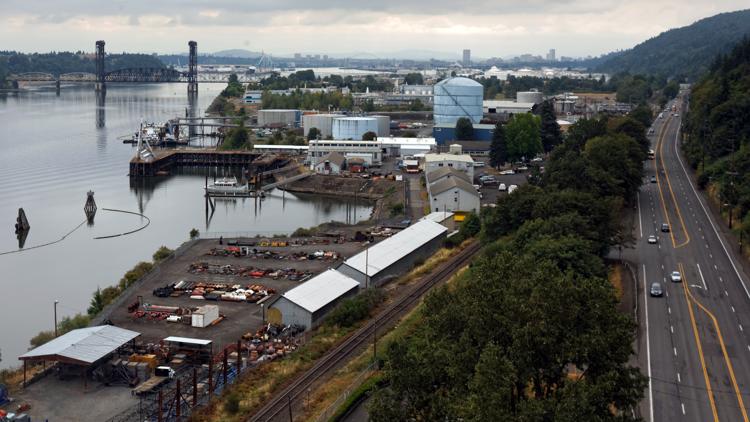PORTLAND, Ore. — The Portland City Council is preparing to make its third attempt in six years to put strict limits on the size of existing and future local fossil fuel terminals. The two previous versions of the ordinance ran into trouble after being appealed by business groups.
The ordinance, known as the Fossil Fuel Terminal Zoning Amendments, amends Portland’s zoning code to create a specific land use category for bulk fossil fuel terminals and prohibits the expansion of storage tank capacity at existing facilities in the city. It also limits storage tank capacity at any new fuel terminals to 2 million gallons and prohibits storing coal.
The council held a public hearing for the latest version of the ordinance on Thursday, with a vote scheduled for July 21. In addition to furthering the city’s climate change goals, the change is intended to tackle earthquake risks.
Portland’s existing fossil fuel export terminals are clustered along the Willamette River in Northwest Portland in what the city refers to as the Critical Energy Infrastructure Hub, which includes 10 petroleum product terminals with a combined storage capacity of about 388 million gallons and one liquid natural gas plant and terminal with a capacity of 7.5 million decatherms, according to a report from the Bureau of Planning and Sustainability.
The whole hub sits on soil prone to liquefaction, raising the possibility of a catastrophic spill during a Cascadia Subduction Zone earthquake, which is one of the city’s main reasons for wanting to limit the amount of additional capacity that can be built there.
The ordinance still allows for seismic upgrades at the existing sites, including new tanks that replace existing tanks without raising total capacity. It also includes exceptions to allow for increased storage of renewable fuels and jet fuel, due to projected higher demand for both in the future.
“As we work to make our community safer, the first step is to ensure the situation does not get worse. Continuing to allow new fossil fuel terminals and new fossil fuel storage tanks increases the risk to the surrounding industrial district, the Willamette River and the entire city,” said commissioner Carmen Rubio.
The city initially adopted the amendments in December 2016, but the Portland Business Alliance, the Western States Petroleum Association and the Columbia Pacific Building Trades Council collectively appealed the decision to the state Land Use Board of Appeals (LUBA), and the board ruled in July 2017 that the ban was unconstitutional, among other objections.
The city appealed the ruling to the Oregon Court of Appeals, which ruled that the ban was in fact constitutional, but the court upheld some of LUBA’s other objections. The business groups appealed to the Oregon Supreme Court, which declined to take the case. LUBA subsequently remanded the ordinance back to the city to address the objections that the appellate court had upheld.
The council made a second attempt in December 2019, and the city said the new ordinance would address the issues in LUBA’s remand order. The ordinance was again appealed, and LUBA remanded it a second time, demanding that the city address several points including the impact on future demand for natural gas and any potential negative impacts on Portland as an industrial import and export center. The city claims the third version includes findings and evidence to address the state board’s concerns.



